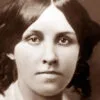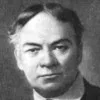You have a good many little gifts and virtues, but there is no need of parading them, for conceit spoils the finest genius. There is not much danger that real talent or goodness will be overlooked long, and the great charm of all power is modesty.
Louisa May Alcott (1832-1888) American writer
Little Women, ch. 7 “Amy’s Valley of Humiliation” [Mrs. March] (1868)
(Source)
Quotations about:
conceit
Note not all quotations have been tagged, so Search may find additional quotes on this topic.
I don’t believe any man ever existed without vanity, and if he did he would be an extremely uncomfortable person to have anything to do with. He would, of course, be a very good man, and we should respect him very much. He would be a very admirable man — a man to be put under a glass case and shown round as a specimen — a man to be stuck upon a pedestal and copied, like a school exercise — a man to be reverenced, but not a man to be loved, not a human brother whose hand we should care to grip. Angels may be very excellent sort of folk in their way, but we, poor mortals, in our present state, would probably find them precious slow company. Even mere good people are rather depressing.
Jerome K. Jerome (1859-1927) English writer, humorist [Jerome Klapka Jerome]
Idle Thoughts of an Idle Fellow, “On Vanity and Vanities” (1886)
(Source)
There were four things the Master abstained from entirely: he did not speculate, he did not claim or demand certainty, he was not inflexible, and he was not self-absorbed.
[子絕四、毋意、毋必、毋固、毋我]
Confucius (c. 551- c. 479 BC) Chinese philosopher, sage, politician [孔夫子 (Kǒng Fūzǐ, K'ung Fu-tzu, K'ung Fu Tse), 孔子 (Kǒngzǐ, Chungni), 孔丘 (Kǒng Qiū, K'ung Ch'iu)]
The Analects [論語, 论语, Lúnyǔ], Book 9, verse 4 (9.4) (6th C. BC – 3rd C. AD) [tr. Ames/Rosemont (1998)]
(Source)
Different versions of the Analects take these four items in slightly differing order, reflected in the translations below. (Source (Chinese)). Alternate translations:There were four things from which the Master was entirely free. He had no foregone conclusions, no arbitrary predeterminations, no obstinacy, and no egoism.
[tr. Legge (1861)]The Master barred four (words); - he would have no "shall"s, no "must"s, no "certainly"s, no "I"s.
[tr. Jennings (1895)]There were four things from which Confucius was entirely free : He was free from self-interest, from prepossessions, from bigotry and from egoism.
[tr. Ku Hung-Ming (1898)]The Master was entirely free from four things: he had no preconceptions, no pre-determinations, no obduracy, and no egoism.
[tr. Soothill (1910)]He was cut off from four things; he had no prejudices, no categoric imperatives, no obstinacy or no obstinate residues, no time-lags, no egotism.
[tr. Pound (1933); yes, that looks to be five things]There are four things that the Master wholly eschewed: he took nothing for granted, he was never over-positive, never obstinate, never egotistic.
[tr. Waley (1938)]The Master recognized four prohibitions; Do not be swayed by personal opinion; recognize no inescapable necessity; do not be stubborn; do not be egotistic.
[tr. Ware (1950)]He denounced (or tried to avoid completely) four things: arbitrariness of opinions, dogmatism, narrow-mindedness and egotism.
[tr. Lin Yutang (1938)]There were four things the Master refused to have anything to do with: he refused to entertain conjectures or insist on certainty; he refused to be inflexible or to be egotistical.
[tr. Lau (1979)]The Master cut out four things. He never took anything for granted, he never insisted on certainty, he was never inflexible and never egotistical.
[tr. Dawson (1993)]The Master absolutely eschewed four things: capriciousness, dogmatism, willfulness, self-importance.
[tr. Leys (1997)]The Master was absolutely free from four things: free from conjecture, free from arbitrariness, free from obstinacy, free from egoism.
[tr. Huang (1997)]Confucius prohibited the four points: no wantonness, no dictatorship, no stubbornness, and no arrogance.
[tr. Cai/Yu (1998)]The Master avoided four things: no wish, no will, no set, no self.
[tr. Brooks/Brooks (1998); they further interpret, "no fixed opinions, no foregone conclusions, no stubbornness, no self-absorption"]The Master had freed himself of four things: idle speculation, certainty, inflexibility, and conceit.
[tr. Hinton (1998)]The Master observed four prohibitions: no willfulness, no obstinacy, no narrow-mindedness, no egotism.
[tr. Watson (2007)]The Master stayed away from four things: he did not put forth theories or conjectures; he did not think he must be right; he was not obdurate; he was not self-centered.
[tr. Annping Chin (2014)]Confucius has four ultimate mindsets for perfect: no prejudice, no absolute must, no fixation, no self.
[tr. Li (2020)]
Little men would be discouraged if they could see themselves in their true light. So conceit was sent into the world — God’s great gift to little men.
Bruce Barton (1886-1967) American author, advertising executive, politician
“The Gift to Little Men” (1926)
(Source)
Often paraphrased, "Conceit is God's gift to little men."
Talent is God-given; be humble. Fame is man-given; be thankful. Conceit is self-given; be careful.
He’s a good person, you know. In spite of many things, including his own opinion, he’s a good person. Maybe a bit conceited, overbearing, and arrogant, but then, people without a trace of these diseases aren’t usually worth one’s time.
Of great riches there is no real use, except it be in the distribution; the rest is but conceit.
Francis Bacon (1561-1626) English philosopher, scientist, author, statesman
“Of Riches,” Essays, No. 34 (1625)
(Source)
Even in common people, conceit has the virtue of making them cheerful; the man who thinks his wife, his baby, his house, his horse, his dog, and himself severally unequalled, is almost sure to be a good-humored person, though liable to be tedious at times.
Oliver Wendell Holmes, Sr. (1809-1894) American poet, essayist, scholar
Article (1857-11), “The Autocrat of the Breakfast-Table,” Atlantic Monthly
Collected in The Autocrat of the Breakfast-Table, ch. 1 (1858)










